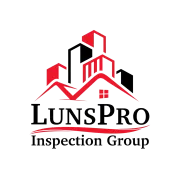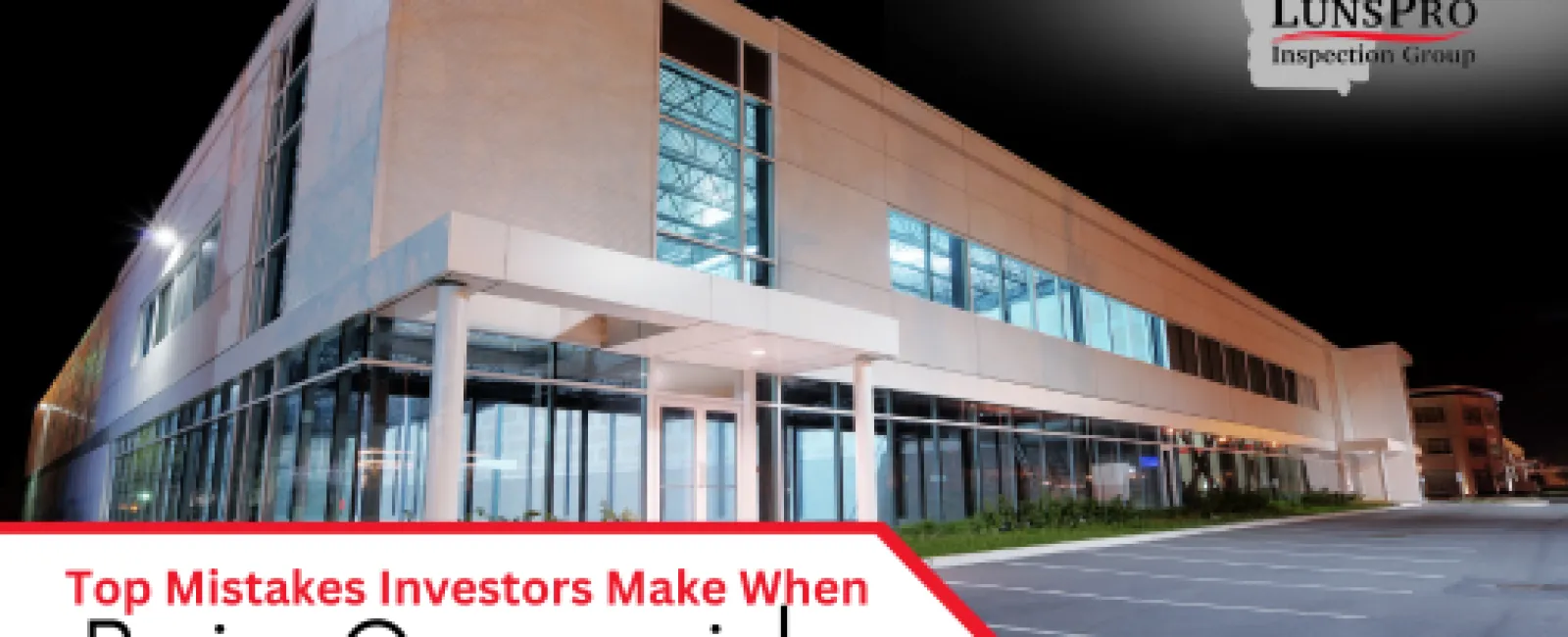Commercial real estate (CRE) can be an excellent long-term investment—offering steady cash flow, asset appreciation, and tax advantages. Whether it's a retail center, office space, multi-family unit, or industrial property, the appeal of diversifying through real estate is undeniable. But too often, eager investors overlook critical steps during acquisition, particularly when assessing the condition and stability of a property. These oversights can turn a promising investment into a liability.
At LunsPro Inspection Group, we've conducted thousands of Atlanta, Alpharetta, and Athens Residential and Commercial Inspections, and the mistakes we see investors make are often preventable. From failing to conduct a thorough property inspection to underestimating foundation issues or misjudging operating costs, new and seasoned investors alike can fall into costly traps. In this article, we'll explore the top mistakes investors make when buying commercial real estate—especially in fast-growing markets across the Metro areas—and how to avoid them through smart planning, professional evaluations, and due diligence.
1. Skipping a Full Commercial Property Inspection
One of the most damaging mistakes investors make is assuming a property "looks fine" and skipping a professional inspection. This is especially risky in Georgia, where humid summers, clay-heavy soil, and aging infrastructure can mask serious structural issues.
A comprehensive commercial inspection from LunsPro Inspection Group includes a detailed evaluation of:
Roof systems and drainage
Foundation integrity and signs of settling
HVAC performance and age
Electrical panels and load capacity
Plumbing systems and leak detection
Fire and safety compliance
Accessibility code adherence
Parking lot condition and grading
Building envelope (walls, windows, siding, flashing)
Without this information, investors risk taking on hidden liabilities that can lead to capital expenditures far beyond what was budgeted. In our experience with Georgia home inspections and commercial assessments, foundational defects are some of the most expensive and difficult to repair after closing.
2. Underestimating Foundation and Structural Risks
The Metro areas of Georgia are no strangers to soil movement, drainage challenges, and fluctuating ground moisture. These factors put constant pressure on foundations—especially for older buildings and those constructed before modern code updates.
Red Flags Often Missed by Investors:
Hairline or stair-step cracks in brick or concrete
Uneven floor surfaces or door misalignments
Damp crawl spaces or basements
Improper slope around the property exterior
Water pooling near slab edges or piers
Ignoring early signs of structural instability can lead to future lawsuits, tenant safety issues, and even code violations. That's why every investor purchasing in Atlanta, Alpharetta, or Athens should make foundation health a top priority in their inspection checklist.
3. Relying on Seller Representations Without Verification
Sellers are required to disclose known defects—but many commercial transactions involve "as-is" language that places the burden of discovery on the buyer. Too many investors take the seller's word on HVAC condition, roof age, or occupancy certificates without verifying independently.
The smarter approach is to:
Hire licensed inspectors for a third-party evaluation
Review building permits and historical maintenance records
Ask for utility bills to gauge efficiency and operating costs
Validate square footage and zoning with local municipalities
LunsPro's Atlanta, Alpharetta, and Athens Residential and Commercial Inspections often uncover inconsistencies between seller disclosures and actual site conditions—saving investors from stepping into problematic deals.
4. Failing to Evaluate Deferred Maintenance and Lifecycle Costs
A building may appear well-maintained on the surface, but hidden signs of deferred maintenance—unrepaired leaks, aging equipment, outdated fire systems—can quickly eat into profits.
Common Oversights Include:
Roofs nearing the end of their useful life
HVAC systems with limited lifespan remaining
Plumbing systems using obsolete or corroded materials
Incomplete ADA compliance (which can trigger costly upgrades)
When performing Georgia home inspections or commercial assessments, we often help investors develop a "lifecycle report" to anticipate capital expenditures over the next 5-10 years. This allows for smarter budgeting, rent pricing, and valuation modeling.
5. Overlooking Environmental and Drainage Issues
Environmental concerns aren't limited to industrial properties. In fact, we often find moisture issues and drainage problems at office parks, retail centers, and multi-unit housing—especially in flood-prone zones.
Signs of drainage problems include:
Mold or mildew in basements or around window frames
Erosion near downspouts or retaining walls
Standing water near entrances
Inadequate grading around building perimeters
These problems can affect not just structure but tenant health and safety. During our Georgia inspections, we use tools like moisture meters and thermal imaging to identify hidden risks that can reduce a building's longevity and increase insurance premiums.
6. Ignoring Code Compliance and Accessibility Requirements
Commercial buildings in Atlanta, Alpharetta, and Athens are subject to a range of building codes and regulations. Many investors make the mistake of assuming a currently occupied building is up to code—only to discover deficiencies during renovations, re-leasing, or refinancing.
Inspection Checks Include:
ADA compliance for ramps, doors, and restrooms
Exit signage and emergency lighting
Electrical system safety and panel access
Elevator safety certifications
Fire suppression systems and sprinkler coverage
Without proper documentation and verification, these code issues can delay renovations, increase insurance costs, or cause problems during re-tenanting.
7. Misjudging Market Trends and Location Nuances
While not a physical inspection issue, failing to consider local market shifts can be just as damaging. Properties in declining retail corridors or transitional neighborhoods may look attractive on paper but face long-term vacancy or tenant turnover.
Work with inspectors who understand regional patterns and collaborate with local brokers or planning departments to understand development plans, zoning changes, or traffic shifts that may affect your asset's value.
8. Not Using an Inspection to Strengthen Negotiations
Too many investors see inspections as a post-offer formality, rather than a tool for negotiation. But the findings from a thorough inspection can often be used to:
Renegotiate purchase price based on necessary repairs
Request seller credits for aging systems or deferred maintenance
Reassess ROI models based on future capital needs
Delay closing until safety issues are resolved
Investors who partner with LunsPro Inspection Group gain more than a report—they get insight and leverage that can impact deal structure and long-term performance.
Commercial real estate remains a powerful investment vehicle, but it's not without risk—especially for buyers who overlook due diligence. From hidden foundation cracks to outdated plumbing and non-compliant fire systems, the real cost of a property isn't always found on the listing sheet.
A detailed inspection from LunsPro Inspection Group can uncover these risks before you sign, giving you the clarity to move forward—or the leverage to walk away. With decades of experience in Atlanta, Alpharetta, and Athens Residential and Commercial Inspections, our team understands the regional challenges that investors face in the Georgia market, including soil movement, drainage issues, and regulatory hurdles.
As you grow your portfolio, don't let preventable mistakes drain your profits. Partner with LunsPro for comprehensive, actionable inspections that support smart commercial investment decisions from the ground up.

